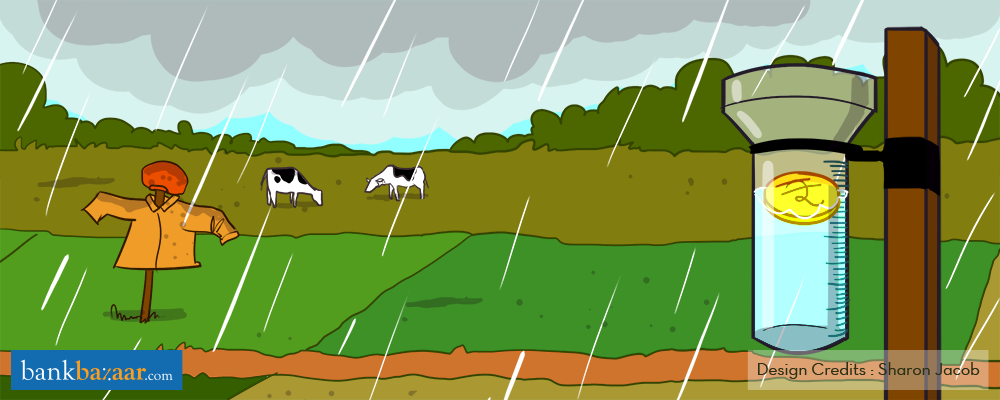
Every expert, be it stock, banking or any other industry, is looking at the monsoon. It should be the farmers who should be concerned about the monsoons, right? Well, not exactly! The monsoons affect almost every industry in the country. They actually determine how our economy will perform. They also have a major impact on how the interest rates would pan out. In fact, the central bank of our country, the Reserve Bank of India (RBI), looks at the monsoon to decide whether to hike or cut interest rates. Really? Yes. Here’s the connection between the two.
The Indian Economy =Agrarian Economy
India is a self-sufficient country when it comes to food. We are the top producers of a number of commodities. This includes rice and wheat, our staple food. But only if the monsoons are normal. A good monsoon will mean a good crop output for farmers. A bumper output will mean that the food supply will be enough to meet demand. This in turn will lead to crop prices remaining stable. If the demand is higher, prices might even fall. All this will boil down to the fact that inflation in the country will remain stable. For the economy to grow, it is important that inflation does not move up. Additionally, when crop output is high, there will be more money in the hand of farmers as well as others (inflation is stable, remember?). This will translate to great demand for goods and services. This is the reason why the economy grows when inflation remains stable.
Why No Rain Is A Royal Pain
Now, what happens during a bad monsoon? Crops that come up for sale are lower than usual. This means that demand will be far greater than supply. As is obvious, when demand is more than supply, prices start moving up. When food prices go up, inflation naturally will be higher. This means less money in everybody’s hands. If inflation is high, growth in income levels tends to be slow and also unemployment levels go up. This means lower business investments and, subsequently, slower growth of the economy.
Understood? We can now move on to how this decides interest rates.
Bearing On Interest Rates
The central bank, RBI, has the best interests of the nation in mind. This means that the bank will want to ensure that growth levels in the economy are stable. This is possible only when inflation is in place. When inflation is high, cutting interest rates might push inflation higher. This is because when interest rates are cut, consumer spending will go up. Also, when interest rates for investments are lower, savings in the country will go down. Loans will also go up, pushing a number of people into debt. Now, that is a dangerous situation. This is precisely the reason why the RBI is wary of cutting interest rates and keeps monitoring inflation. And inflation is, of course, tied to the monsoons. That’s a pretty clear connection now, isn’t it?
Why You Too Should Be Concerned
When the Government is so concerned about the monsoons and inflation, shouldn’t you be too? After all, it could affect the returns on all your investments.
If your investments don’t beat inflation in the long run, then you are actually losing money by investing. How, you ask? Suppose you are getting 8% from your investment and the average inflation over the investment period has been 9%, this means that you are getting a negative return of 1%. This is the reason why you shouldn’t keep too much money in your savings account, which yields just about 4% while inflation has always been much higher.
So just what should you do?
Cloudy With A Shower Of Returns
Scout for investments that have beat inflation over the long term. You will definitely come across equities. The best way to start investing in equities is through Mutual Funds. And investing through SIPs is a good way to begin. And did you know that the equity markets tend to do well when the monsoon is good? That brings us back full circle to the monsoons. So, start saving for a rainy day and keep inflation in mind.